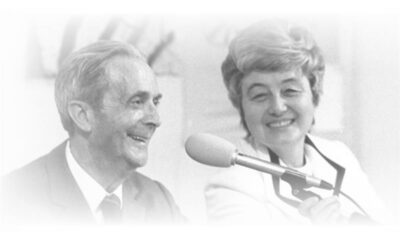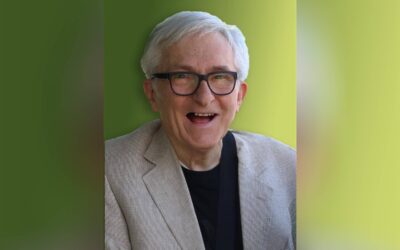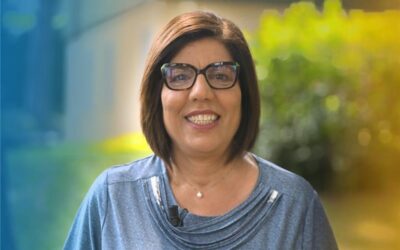Chiara Lubich, honorary citizen of Florence
20/09/2000
![]()
Over 3000 people participated in the ceremony in Palazzo Vecchio, along with those linked through the maxi screen in Piazza della Signoria. The Mayor, The President of the European Commission, Romano Prodi, and Chiara Lubich addressed the participants. Present were Cardinal Piovanelli, a number of bishops, mayors of Italian and other European cities, a Muslim Imam, representatives of the Buddhist faith and of other Churches and ecclesial Movements.
“This honorary citizenship recognises the work of Chiara Lubich in the area of dialogue among people of different religious beliefs, and among peoples, and her tenacious will to always seek common ground even with those who do not profess any religious faith, thus promoting human development above all in this time which is marked by a closed mentality and intolerance towards all that is different.”
This was one of the main reasons given in the motivation read by the President of the Florence City Council, Alberto Brasca, in the famous historical setting of the Hall of the Five Hundred in Palazzo Vecchio.
“Chiara’s message is not only for believers,” affirmed Mayor Leonardo Domenici, “It also has something to say to those who, while not professing any religious belief, have never ceased believing that this world, this society is in need of profound changes in order to respond – as Chiara herself says – to the challenge that this millennium may see the building of a new world of peace.” He defined this day as, “a day of commitment and of reflection, and not simply an occasion for celebrating a new citizen”.
Openness and dialogue are what Europe is so urgently in need of as it undergoes a seachange which President Prodi defined as “dramatic”: it is “faced with the choice between remaining closed or bringing to completion the unity of western and eastern Europe with the consequent population increase from 370 to 500 million people, while the increase in revenue is only eight percent.”
Prodi recalled a very demanding slogan used by Chiara Lubich: “Love the other’s country as one’s own”. He pointed out that “this openness is not a denial of our identity. It’s an openness towards others which reinforces our identity. This concept of unity in diversity gives us the courage to maintain our own identity in every debate or discussion”.
Having recalled the role of Florence in the world and those historical figures who have contributed to its reputation as a crossroads of dialogue, Chiara Lubich spoke in depth of the “spiritual and cultural gifts the Focolare Movement brings to the city” (Il Corriere di Firenze). In her talk, the new citizen showed the courage of her convictions by offering the very diverse audience the witness of her experience of God based on the Gospel which is the soul of dialogue in all the fields in which the Focolare Movement works. Her words were received “with an almost religious silence” according to the Italian television news service TG1.
One of the councillors, Eugenio Giani, said: “Chiara Lubich has been recognized for her capacity to dialogue”. The ceremony itself was an experience of this. The following day, when interviewed at the Sports Stadium of Florence, prior to the Gen Rosso concert, Mr Giani commented on the previous day’s ceremony:
“I have never seen in that hall such a diverse range of people, representing different disciplines and faiths, ranging from the Orthodox Church to Buddhism. Their presence was a tacit recognition of Chiara Lubich’s spirituality which goes beyond any individual denomination. In fact it gives witness to profound spiritual values which, in one way or another, all of us accept and respond to. We all experienced a very deep joy to have lived such a special moment. So many dignitaries – mayors of Italian cities – were proud to be present. By conferring an honorary citizenship on Chiara Lubich, we felt that in some way or another we were interpreting the deep sentiments of the representatives of our communities from all over the country who, on this occasion, renewed the sense of dialogue, of openness, of internationality with which Florence would like to be characterised and which is characteristic of its history.”




0 Comments